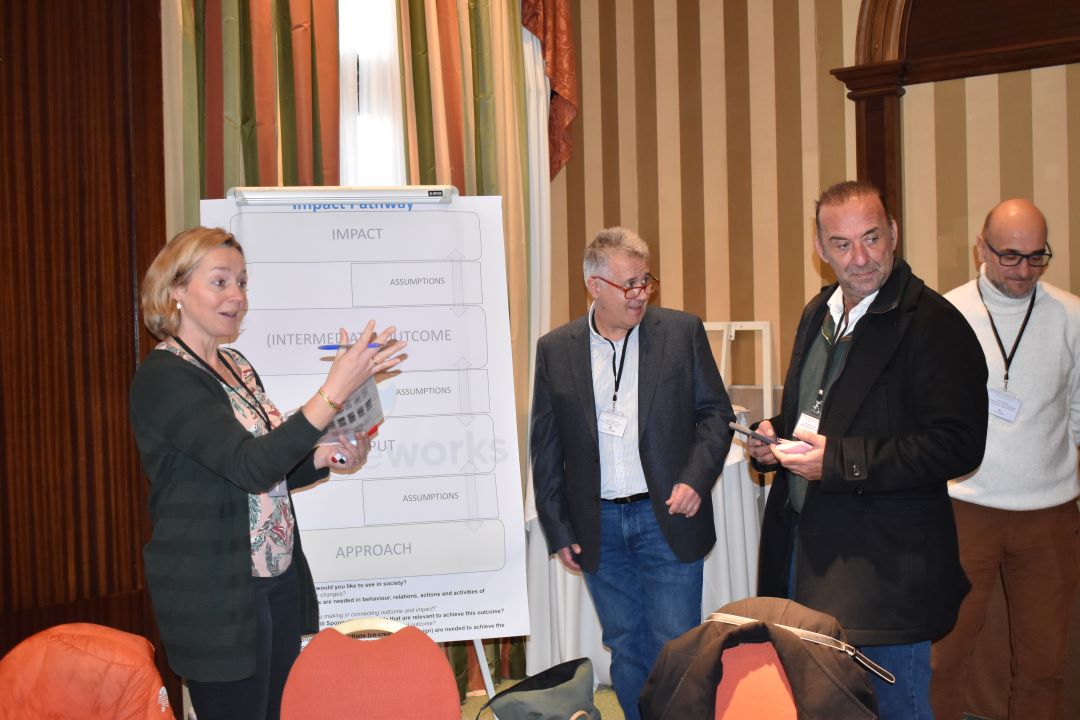The SpongeWorks project, a Horizon Europe initiative focused on Nature-based solutions (NbS) for natural water retention and climate resilience, marked a dynamic beginning with its Pinios River Basin demonstration kick-off meeting in Larisa, Greece, in November 27-28, 2024. GWP-Med is leading the Communication, Dissemination and Exploitation Work Package.
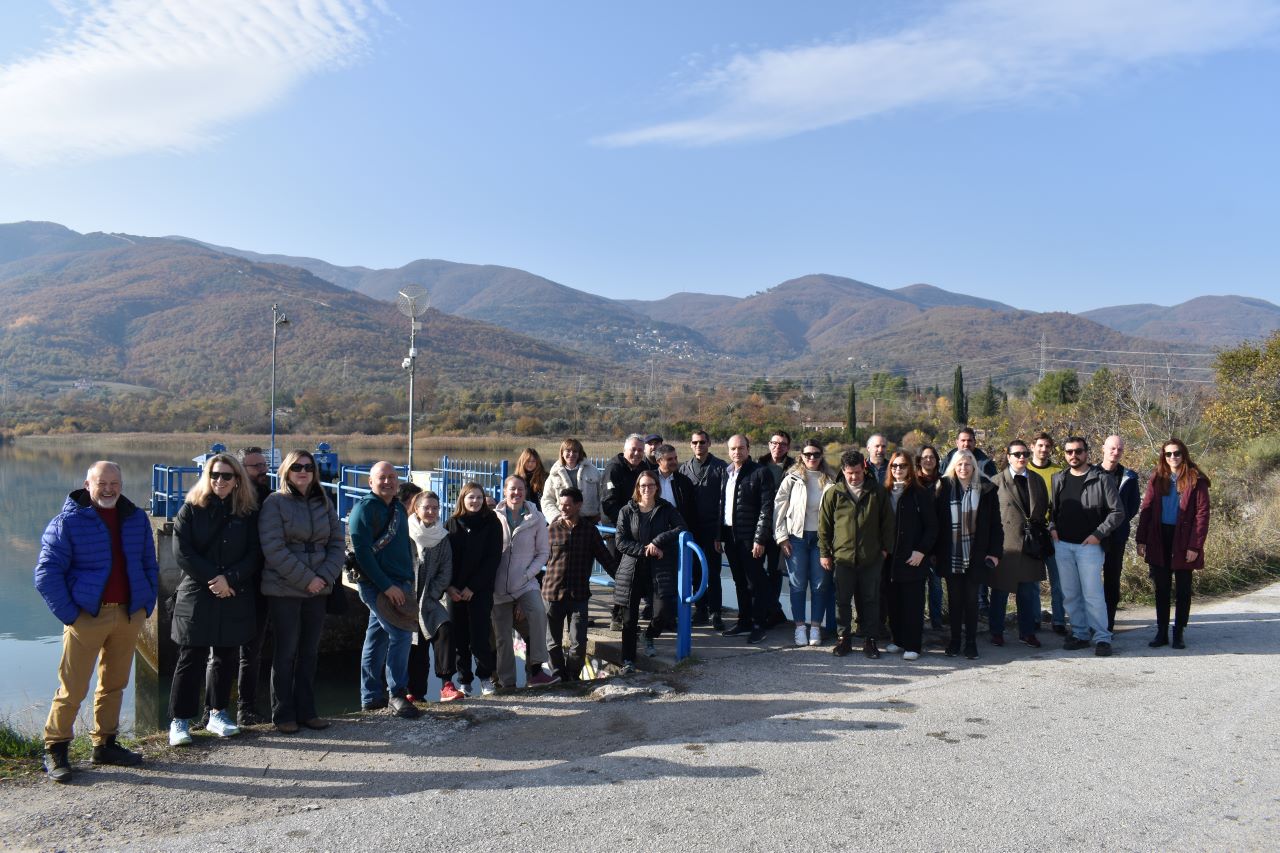
More than 50 participants, including local implementers, national and local authorities in Greece, and European SpongeWorks partners, gathered at the kick-off meeting of the Pinios River Basin demonstrator.
The Pinios river basin, Greece’s key agricultural hub, has recently suffered severe climate impacts from storms ILIAS, IANOS, and only fourteen months ago, storm DANIEL. As a region of intensive agricultural activity, it faces pressing challenges of water scarcity and biodiversity loss. SpongeWorks aims to mitigate these effects by enhancing water retention and increasing climate resilience.
The Pinios river basin is one of three large-scale demonstration sites in SpongeWorks, alongside the Lèze (France) and Vecht (Netherlands/Germany) basins. Local implementation capacity in the Greek demonstrator includes key local stakeholders such as the Tavropos Irrigation Organisation, The Municipality of Trikala (through e-Trikala development company), the Municipality of Agia, and the Melivia chestnut growers’ Cooperative, as well as scientific contributors SWRI and WWF, who will monitor the outcomes of the applied measures.
Innovative ‘Sponge Measures’ Across the Basin
Over the next four years, the project will implement ‘sponge measures’ at more than 200 sites across the basin: these include buffer strips and systematic mulching in Karditsa’s cotton fields, the creation of a narrow riparian forest and a ‘Sponge demo Park’ in Trikala, mulching in urban and peri-urban parks in Agia, and the restoration of terraces with soil water harvesting and reuse in Melivoia village.
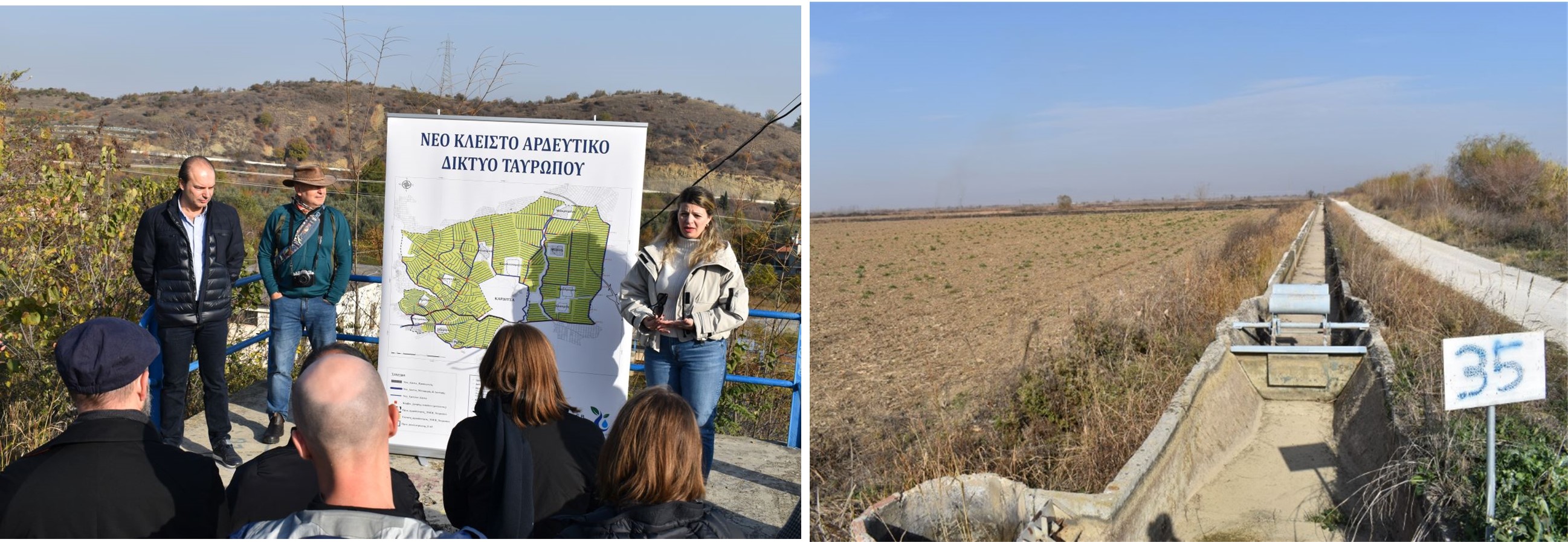
Local Irrigation Organisation TOEV Tavropou will implement a number of Nature-based Solutions such as buffer strips, systematic mulching in cotton fields and soil water management through irrigation planning on a large scale
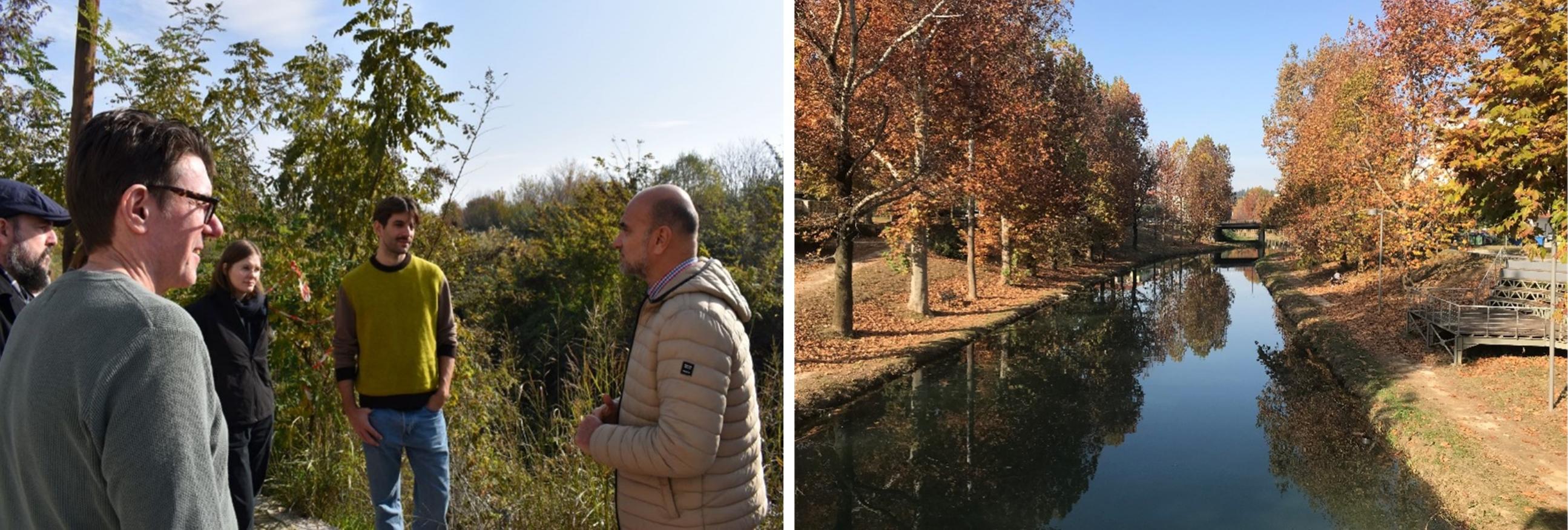
In Trikala, ’sponge measures’ to be implemented include the creation of a narrow riparian forest, the replacement of the old flood gate barrier of the Lithaios river and cleaning from vegetation, and the creation of a ‘SpongePark’ for awareness-raising.
In his opening remarks, Dr. Panagopoulos, Research Director of the Soil and Water Resources Institute of ELGO-Dimitra, emphasized: “Implementing sponge measures will ensure healthy soil and water resources, while fostering resilient societies capable of withstanding floods and droughts”.
Collaborative Efforts for a Sustainable Future
Participants engaged in lively discussions on successful NbS implementations and exchanged insights on their benefits at the landscape scale. SpongeWorks partner University of Twente organized and led a session to collaboratively analyze governance frameworks in Greece. Group sessions identified key actors, their roles, and responsibilities, culminating in actionable next steps to ensure ownership and adoption of sponge measures and strategies at landscape scale.
The event included a field trip to all four different implementation areas within the Pinios large-scale demonstrator. Participants observed and discussed the different measures to be applied in the future implementation sites, such as the Tavropos reservoir, Trikala’s urban initiatives, Agia’s orchard plots, and Melivia’s chestnut fields.
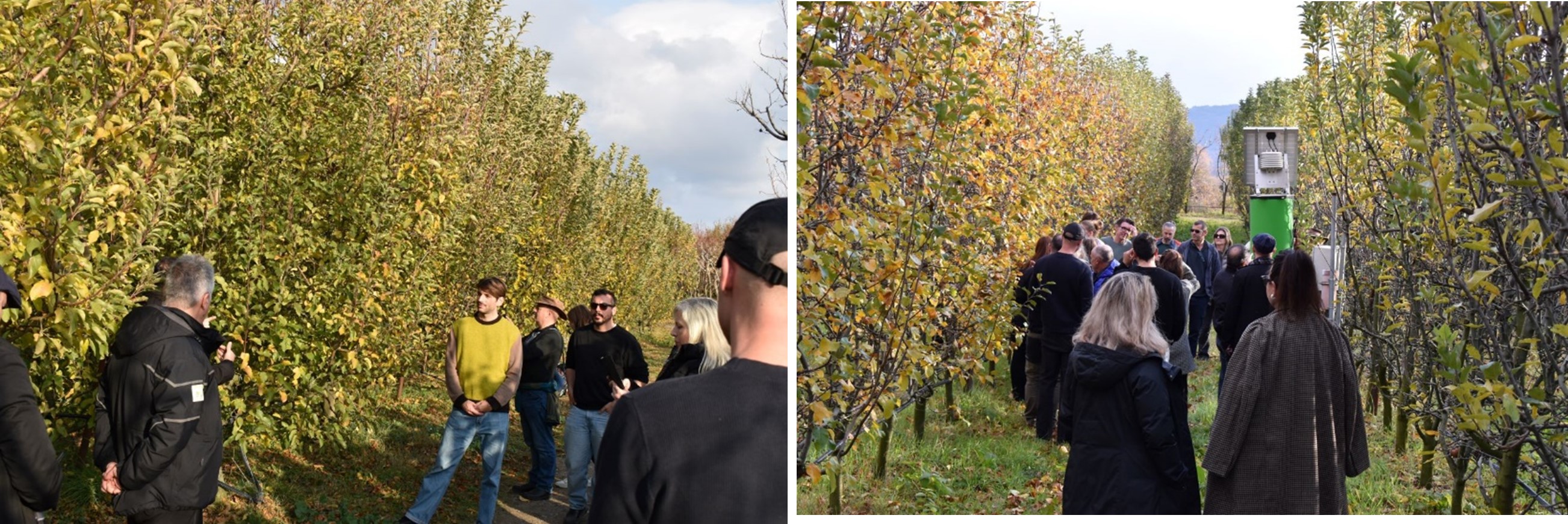
Agia Municipality will implement large scale systematic mulching, soil water management through systematic irrigation scheduling and mulching in urban and peri-urban parks.
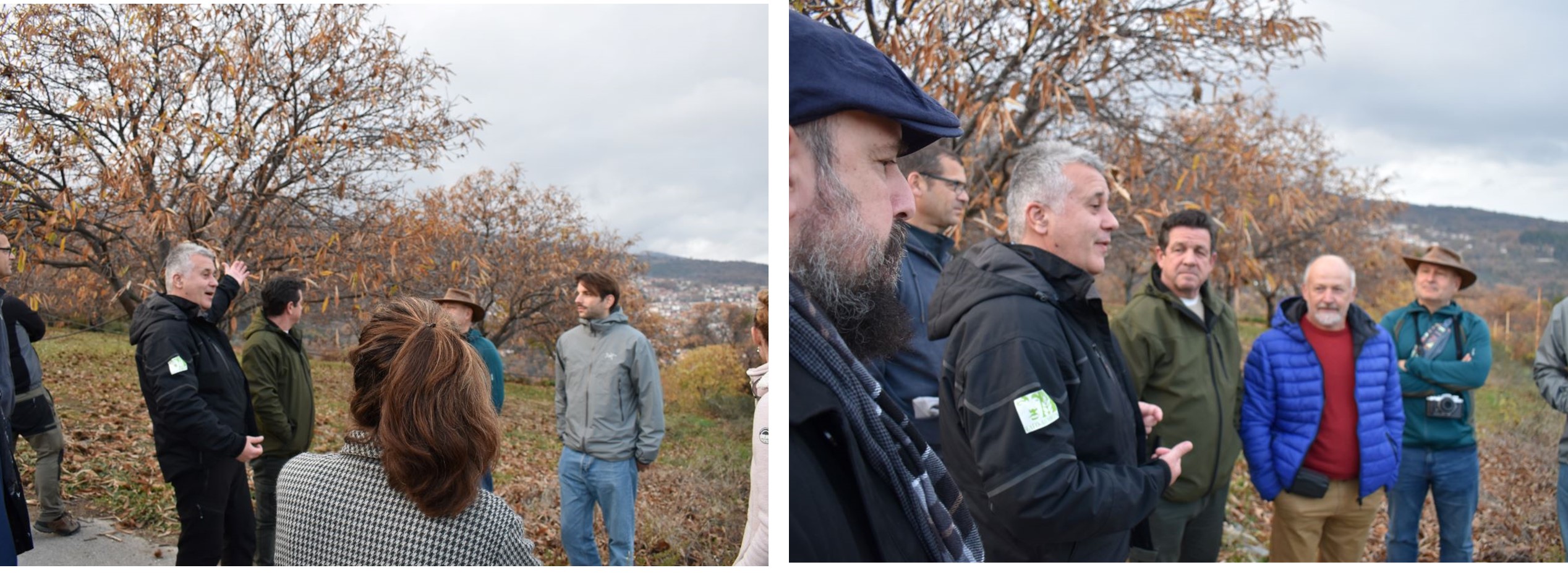
Νature-based Solutions to be implemented in the chestnut fields of the Melivia Cooperative include systematic mulching along with agroforestry, soil water management through irrigation scheduling and the restoration of terraces along with harvesting of soil water.

GWP-Med created ‘sponge cards’ and a ‘sponge pack’ to educate stakeholders in a fun and engaging way about the application method and benefits of different sponge methods.

The meeting garnered extensive media attention. Organised by GWP-Med, SpongeWorks partners were interviewed by all local TV stations, featured on key early-morning radio shows, and highlighted in online newspapers and portals. The meeting was also covered by all major local media outlets, underscoring the significance and widespread interest in the project.
